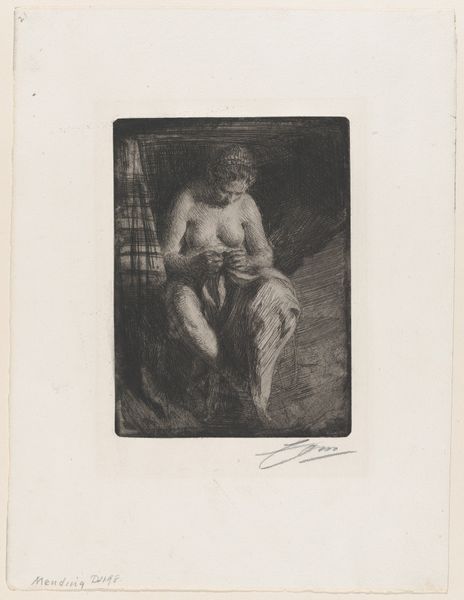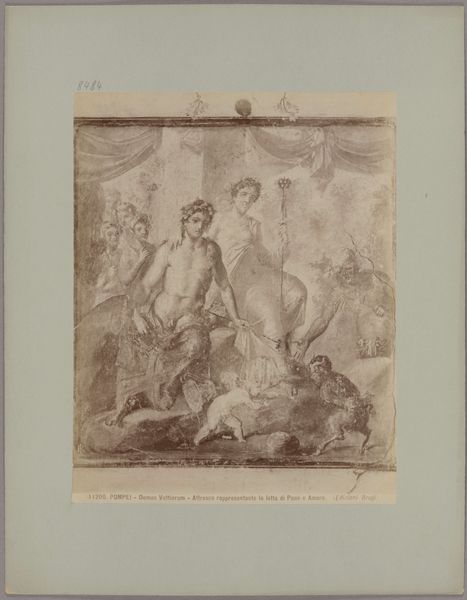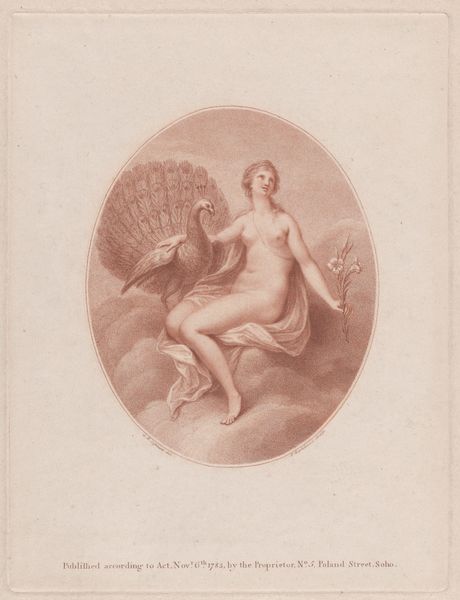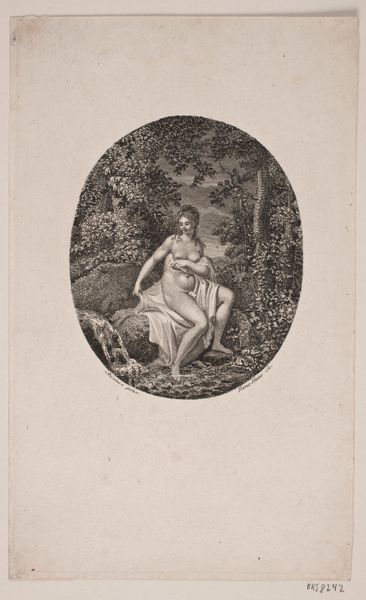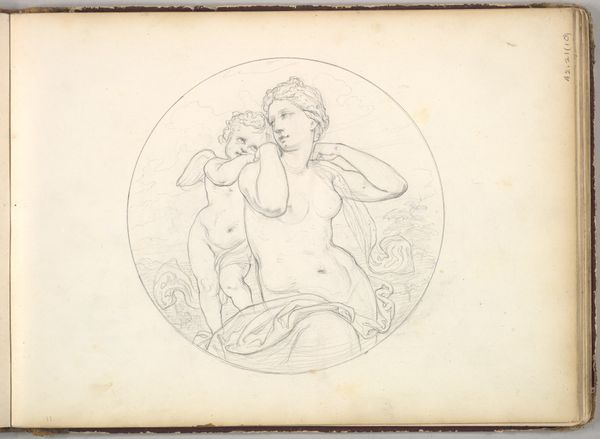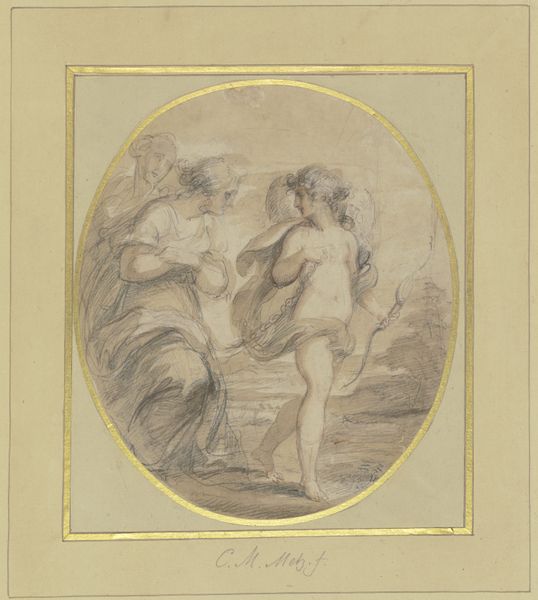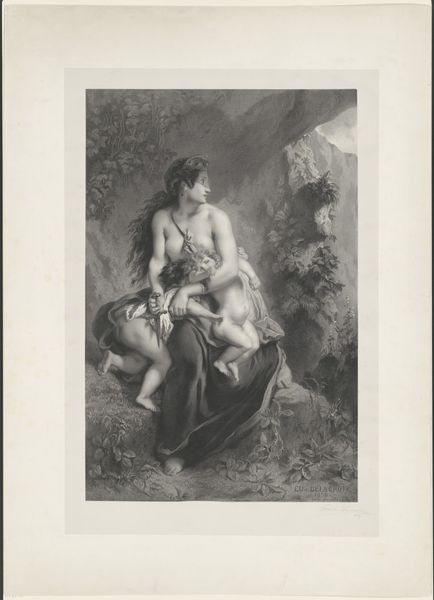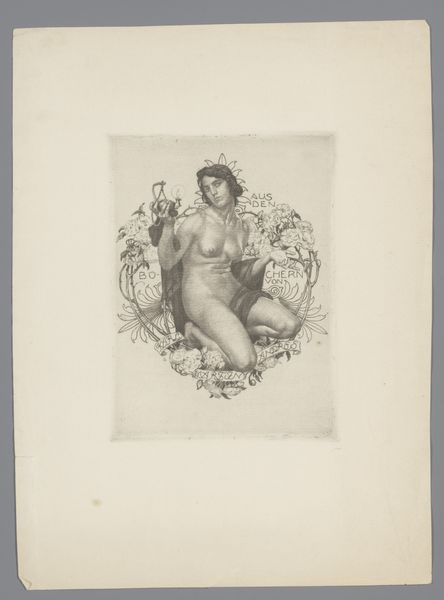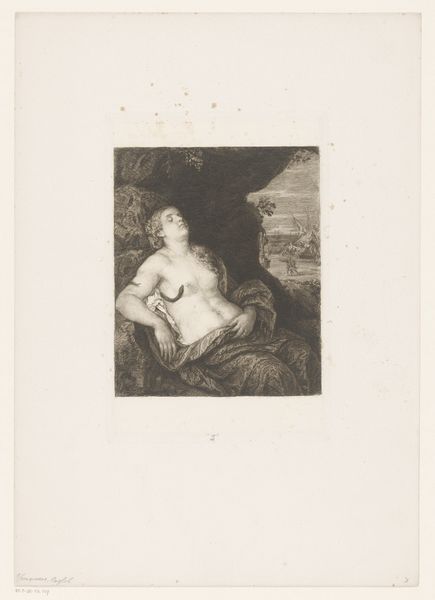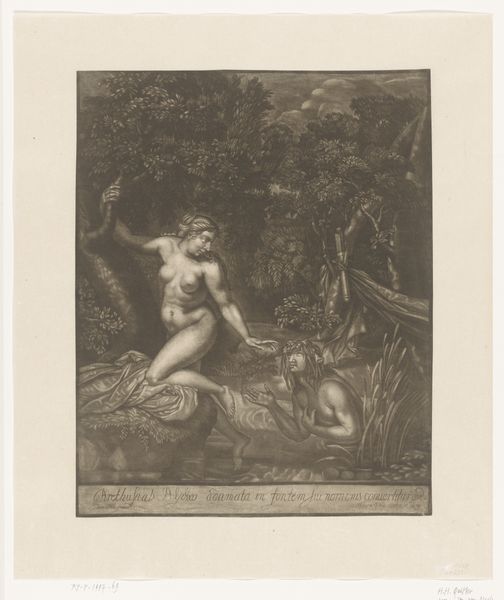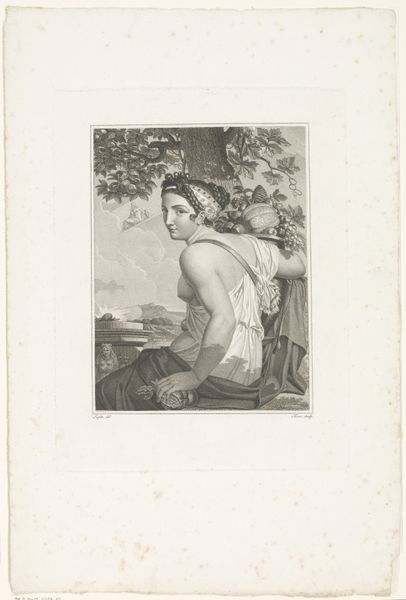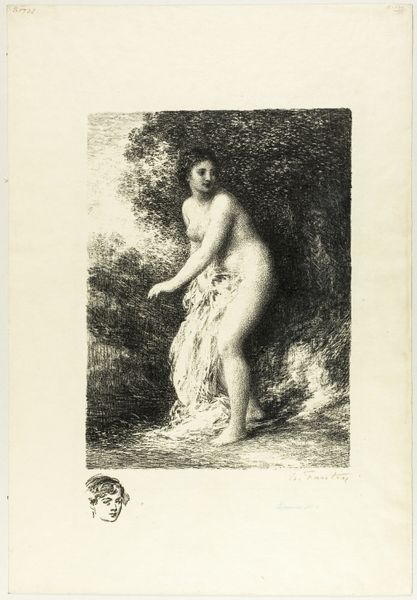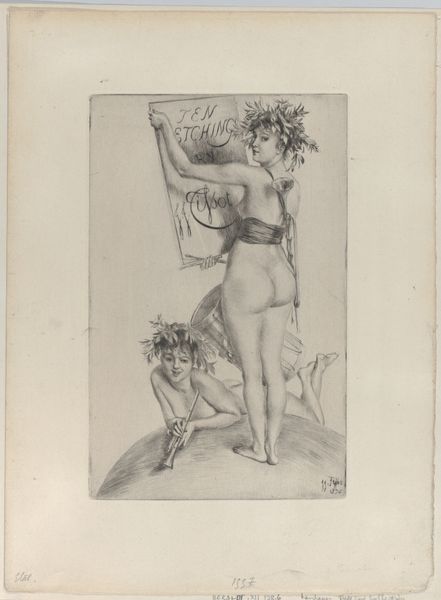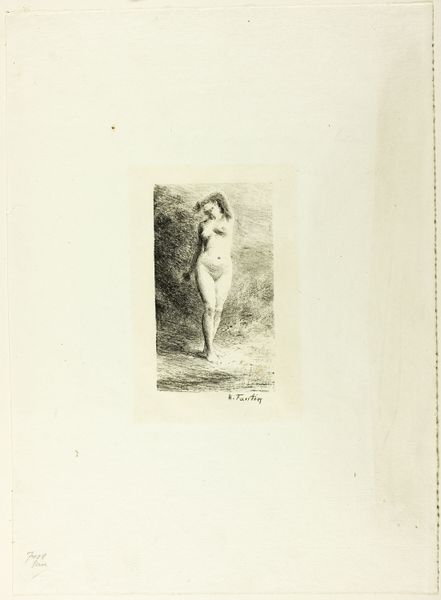
Pompeii_ Domus Vettiorum, fresco representing Cyparis, No. 11205 c. 1880 - 1890
0:00
0:00
albumen-print, paper, photography, albumen-print
#
albumen-print
#
portrait
#
16_19th-century
#
paper
#
photography
#
ancient-mediterranean
#
watercolour illustration
#
history-painting
#
albumen-print
#
realism
Copyright: Public Domain
Curator: I'm utterly captivated by this sepia-toned photograph from, roughly, the 1880s or 90s, capturing a fresco from the House of the Vettii in Pompeii. It’s believed to be the work of Giacomo Brogi. What springs to mind for you? Editor: Well, beyond the palpable sense of ruin it conjures – the slightly faded albumen print giving it that archaeological ghostliness – I’m struck by the relaxed pose of Cyparissus. Almost a world-weariness in his gaze, despite being surrounded by classical motifs like the laurel wreath and the... somewhat deceased stag. Curator: Yes, the stag is central! In Greek mythology, Cyparissus accidentally killed his beloved stag and, overwhelmed with grief, was transformed into a cypress tree. It's potent stuff, tragedy blooming from mistake. Do you see how Brogi, capturing the fresco, sort of…preserves a moment of preservation? Both the painting and the story feel embalmed by the lens. Editor: Absolutely. And the albumen print emphasizes this preservation, adding another layer to its iconic qualities. Notice the wrought-iron object there? It almost imprisons the glass. The symbol of eternal remorse contained. It adds a chilling subtext, this grief held and observed for eternity. Curator: I read it differently. The very medium of photography, arresting the light, mirrors the myth. The transition—from flesh to bark, grief to monument. The image almost weeps history. Editor: You feel it. But looking through that container…it reminds us, doesn’t it, how we like to cage stories too, make morality tales that stand still? This stag isn't free, Cyparissus can't weep in private, his punishment forever in place...even in our minds, centuries later. Curator: I concede the imposition of meaning, particularly by the Romans who celebrated triumph more often than the humanistic pathos of the Greeks. Maybe that's the magic of the photo itself though; It creates echoes across millennia, a gentle ghost calling to other spectres. Editor: Perhaps. What endures then isn't simply the tragic tale, but also our constant effort to categorize its very core. It's as if the container always calls more to us than what we’re meant to fill it with, ultimately. Curator: Well, you've handed me new eyes today; maybe we both are changed...transformed perhaps!
Comments
No comments
Be the first to comment and join the conversation on the ultimate creative platform.
